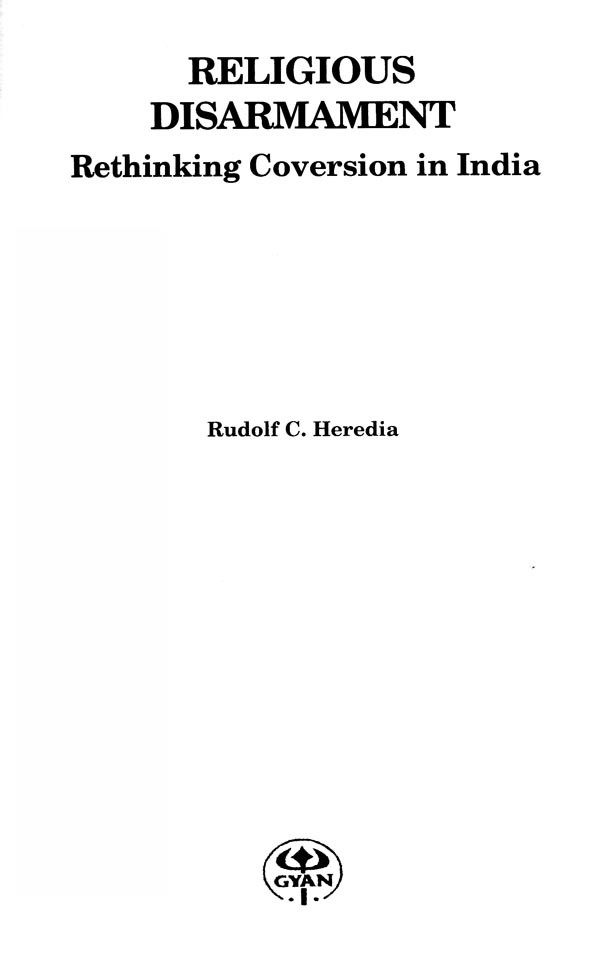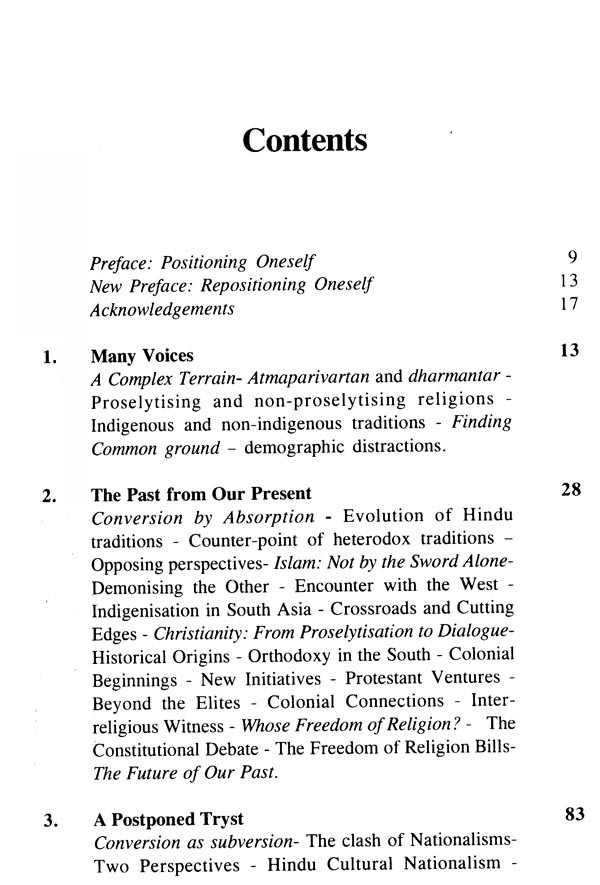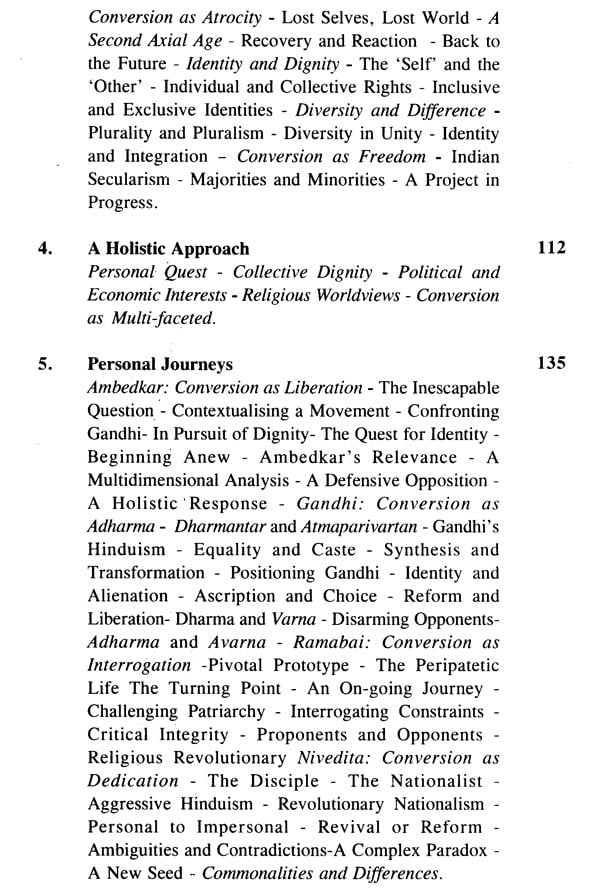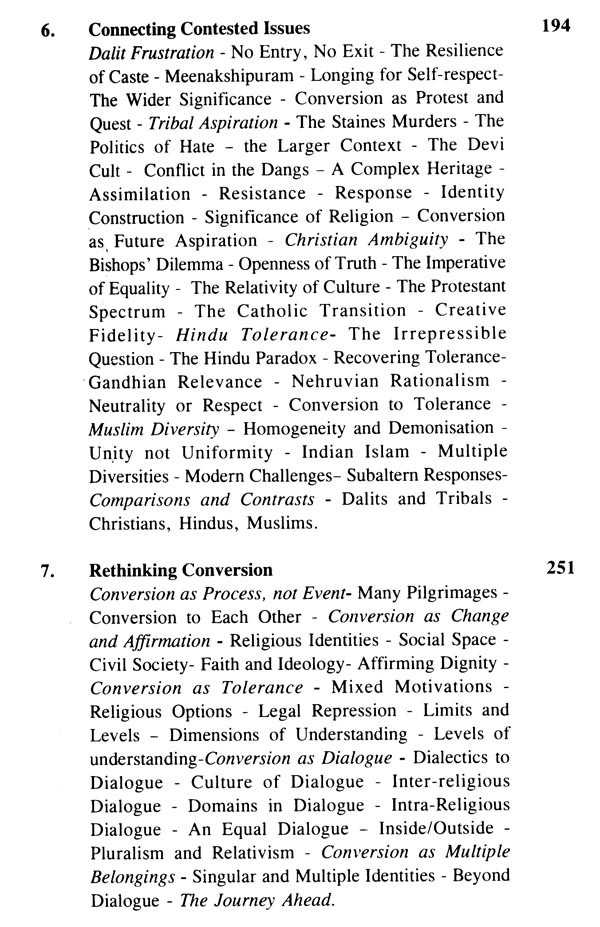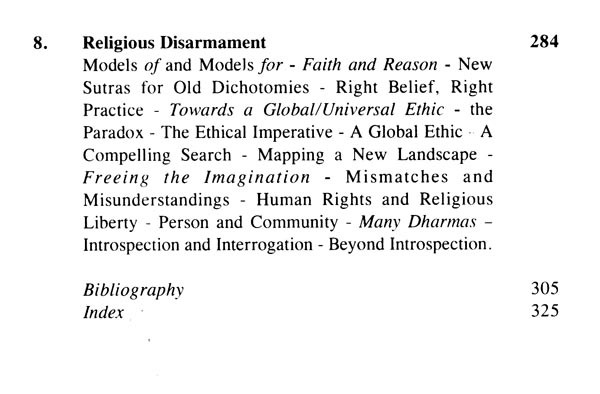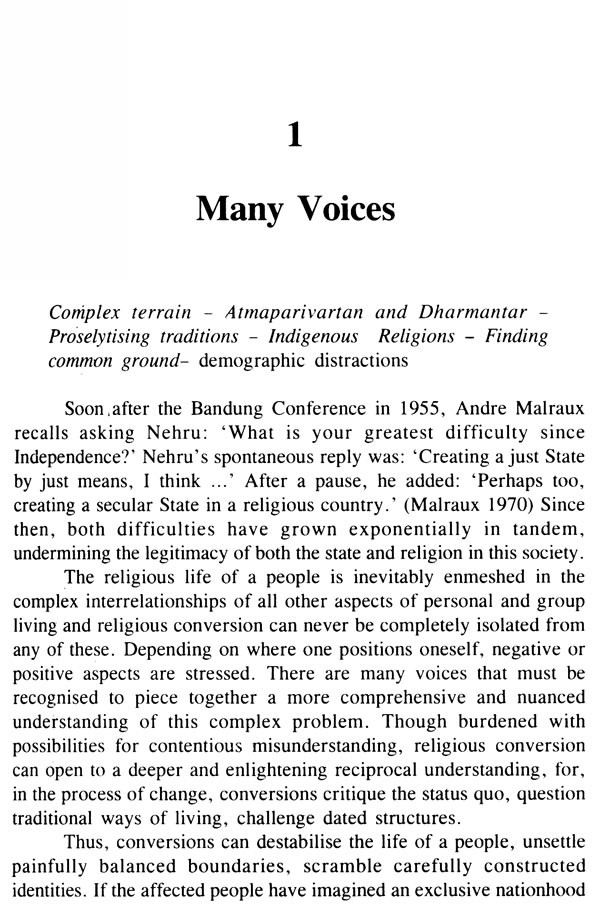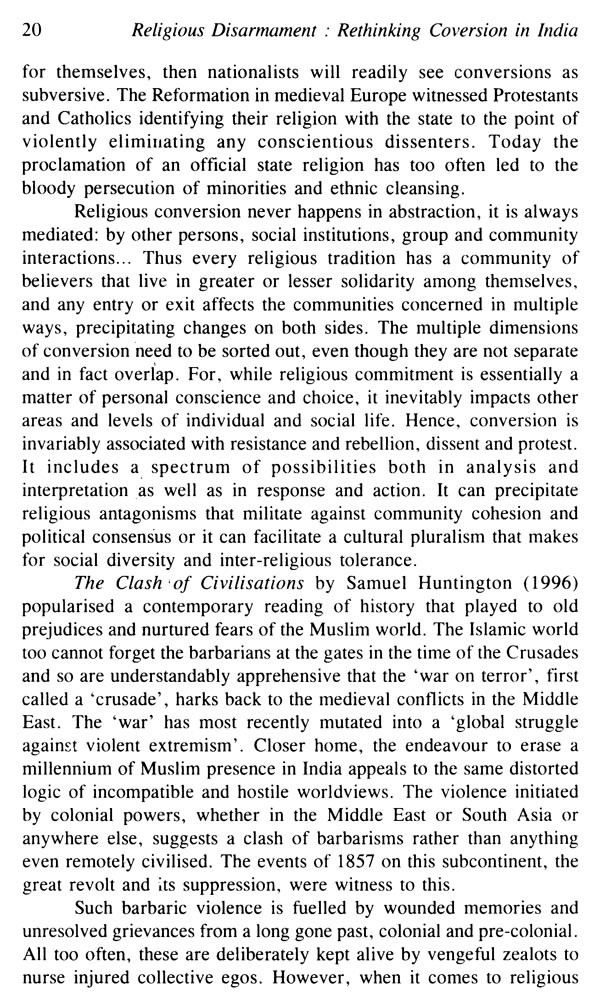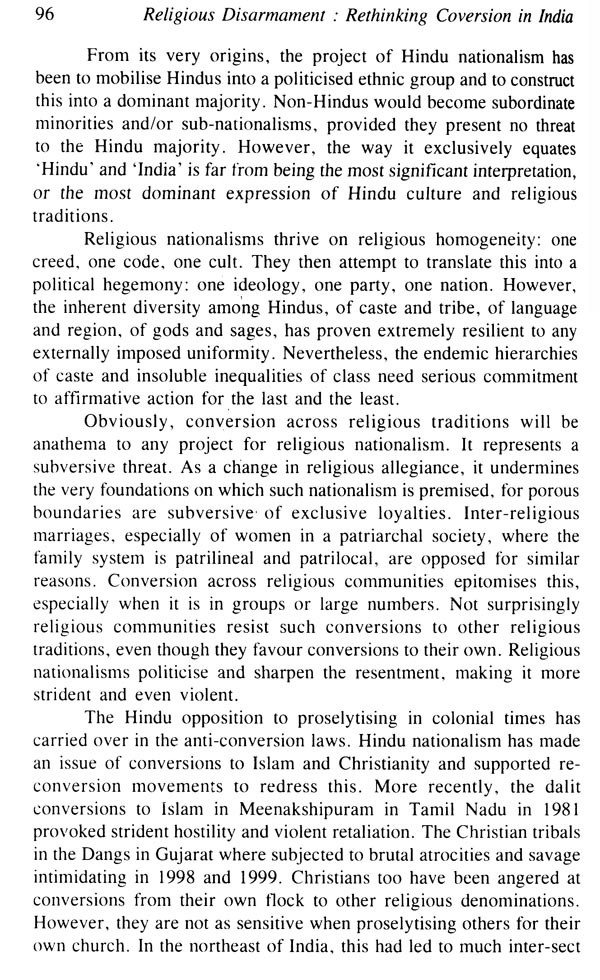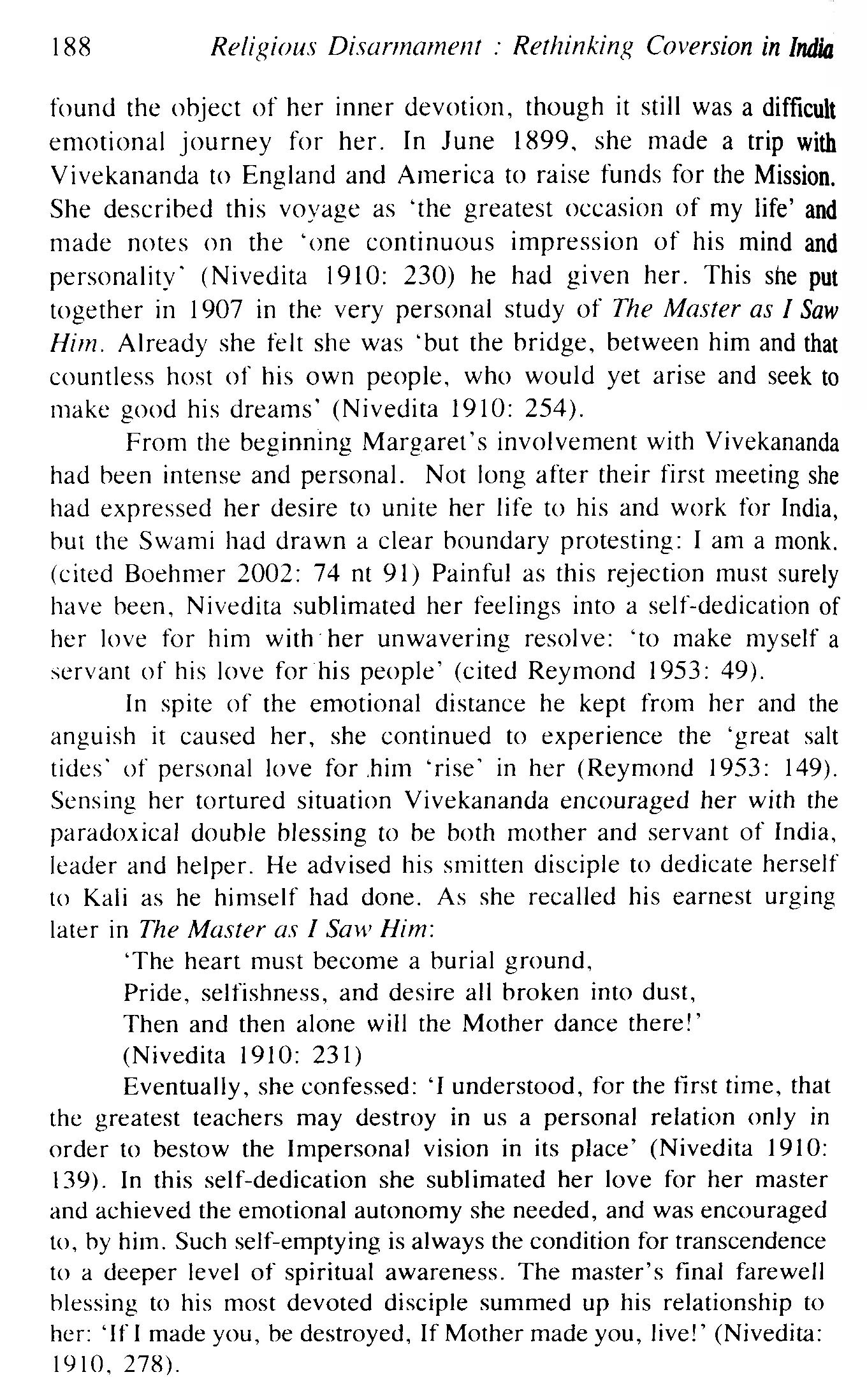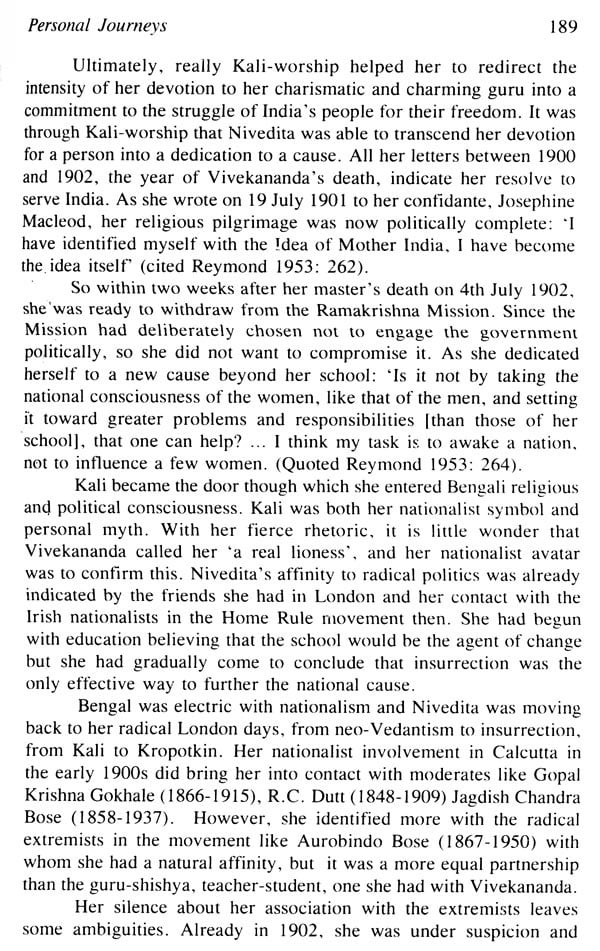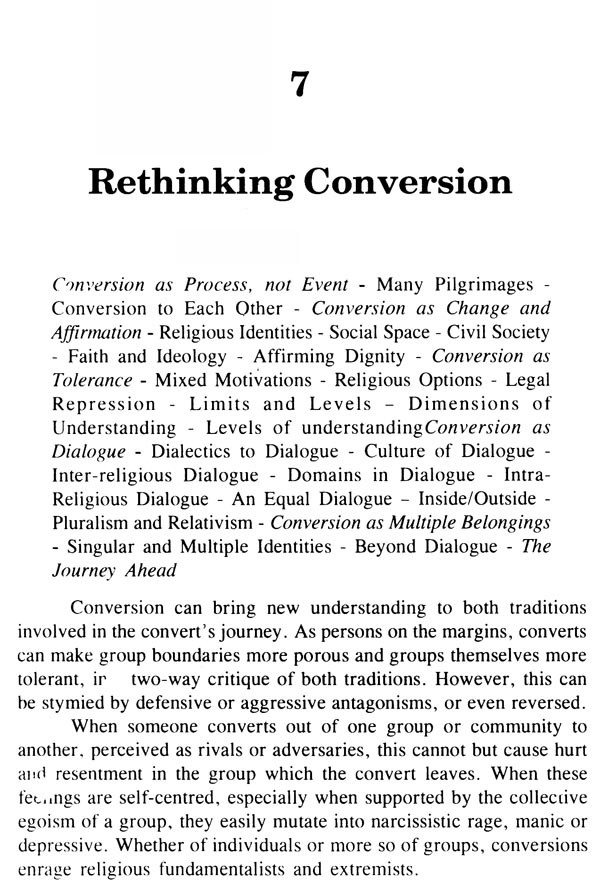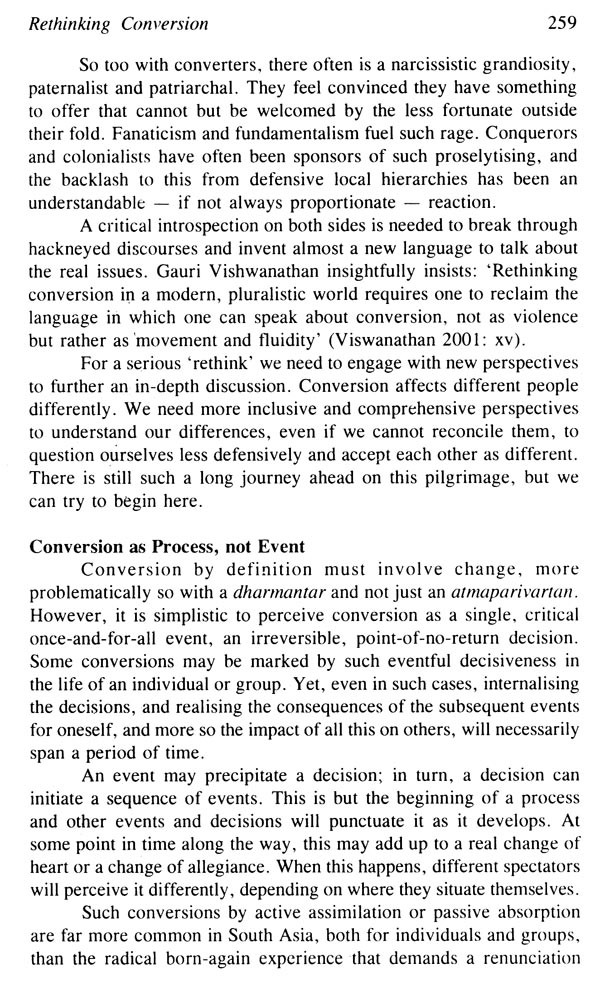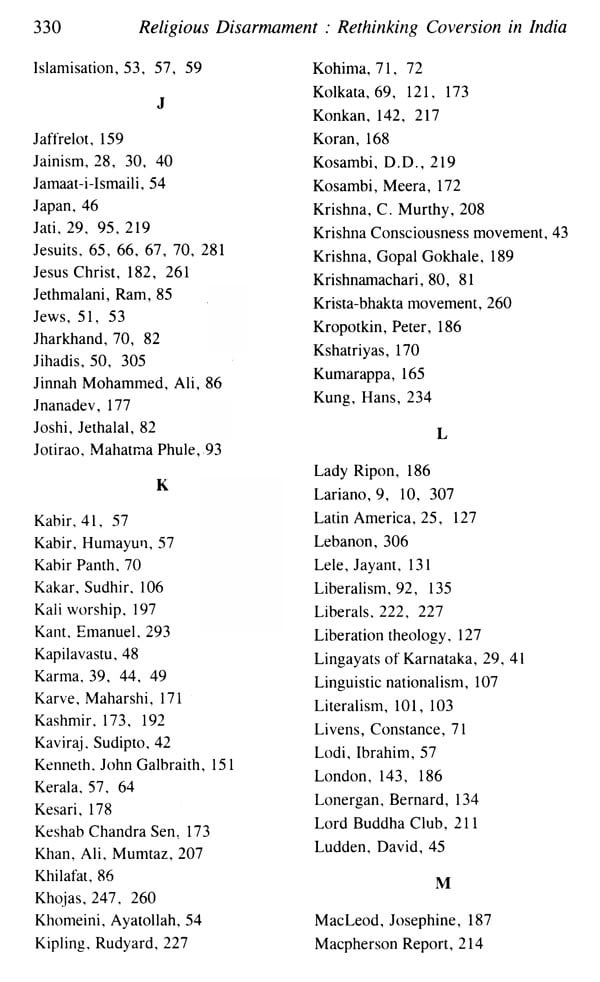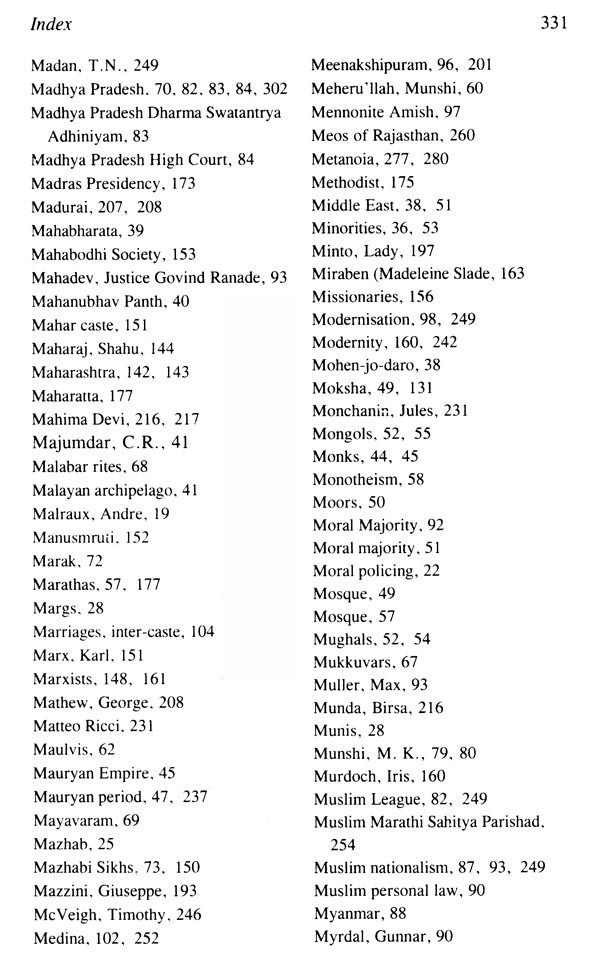
Religious Disarmament- Rethinking Conversion in India
Book Specification
| Item Code: | AZG847 |
| Author: | Rudolf C. Heredia |
| Publisher: | Gyan Publishing House, New Delhi |
| Language: | ENGLISH |
| Edition: | 2014 |
| ISBN: | 9788121212144 |
| Pages: | 336 |
| Cover: | HARDCOVER |
| Other Details | 9.00x6.00 inch |
| Weight | 550 gm |
Book Description
Religious conversion is an unavoidable stumbling block for any aspiration for religious harmony, for any real hope of true religious understanding, both of which are so essential to contain a potentially divisive diversity.
Extremism on either side leaves little room for a middle ground of sanity and common sense. There are exclusive positions that negate such a possibility. Inclusive positions too can have their problems when they absorb other differences, leaving little room for distinctiveness. We need a starting position, and we cannot avoid beginning from where we are, within our own perspectives and commitments. We must engage at this level if we are to repair the damage of the past, to heal old wounds and make anew our future. As we claim our common humanity, we open ourselves to discovering together a richness and depth that we could never have alone.
Conversion is a complex and emotionally charged issue. Fundamentalists of all hues exploit it, liberals confuse it, many do not really comprehend what all the fuss is about, and many more just do not want to get involved. However, especially in a multi-cultural, pluri-religious society like ours, it is a problem that cannot be wished away. For like it or not, we are all in some way involved.
In today's surcharged context of minority bashing and anti-conversion laws, of majoritarian politics and minority vote-banks, the issues implied get more explosive every day. Sooner rather than later we must grasp the nettle. But if discretion is the better part of velour, then besides courage we will need discernment to disentangle. the complications and sort out the confusion, to wrest the discussion from all those who use religion for chauvinistic or egotistic, extremist or obscurantist purposes.
In many places, religious indifference loosely unites a large part of the population; in many others, religious differences sharply divide people. Jonathan Swift once perceptively remarked: "We have just enough religion to make us hate, but not enough to make us love one another." Nowhere is this truer than in India today, and no issue illustrates this better than that of conversion.
Religion has moved to centrestage in the identity politics raging through this land, in the attempt to create convenient vote banks' to be manipulated for political gain. This is dangerously divisive, and the endpoint is all too often some kind of ethnic cleansing or worse, even genocide. The frequency of such instances is horrifying. Some minimal comprehension of the issues involved is necessary for any kind of harmony in our society, not just between religious traditions, but also within them.
**Contents and Sample Pages**
